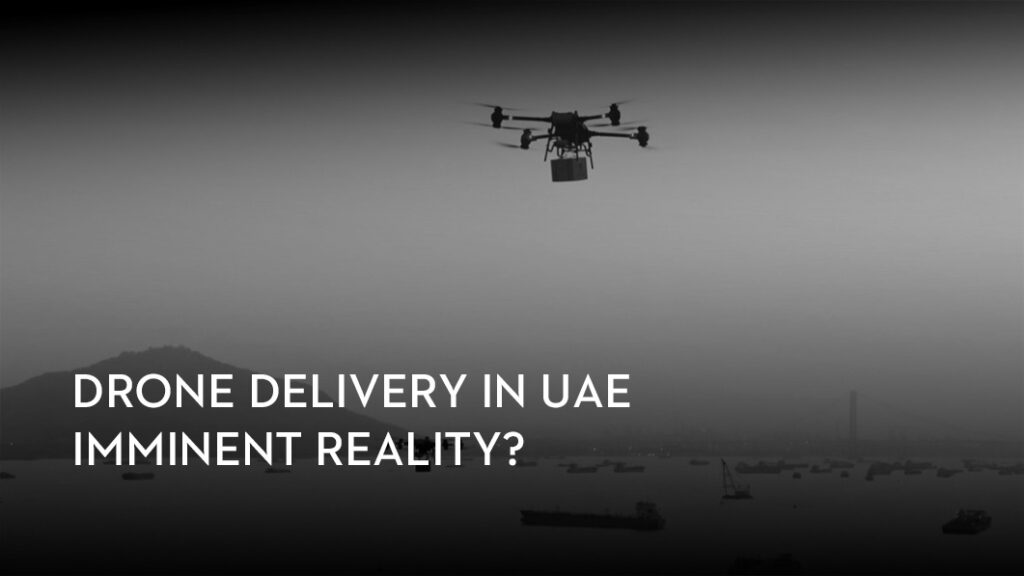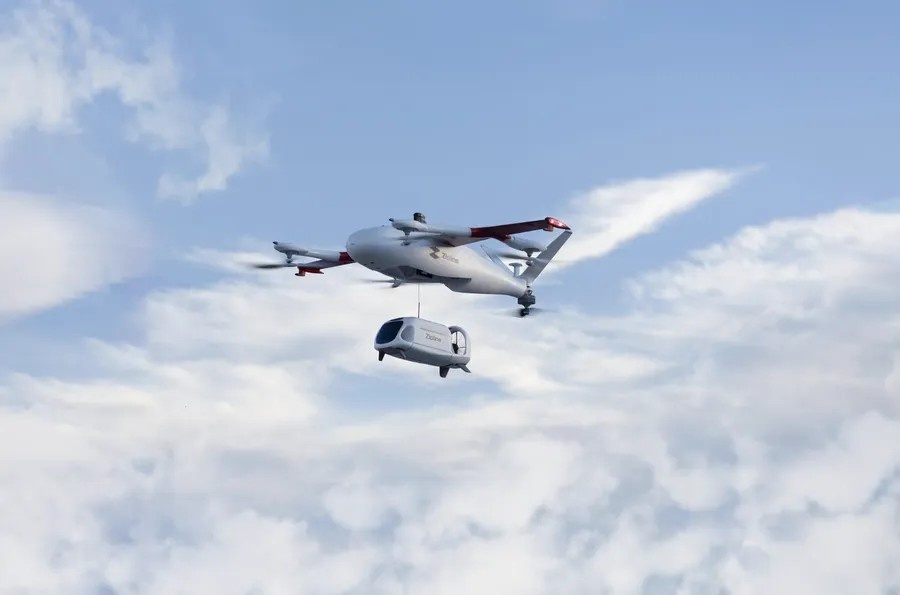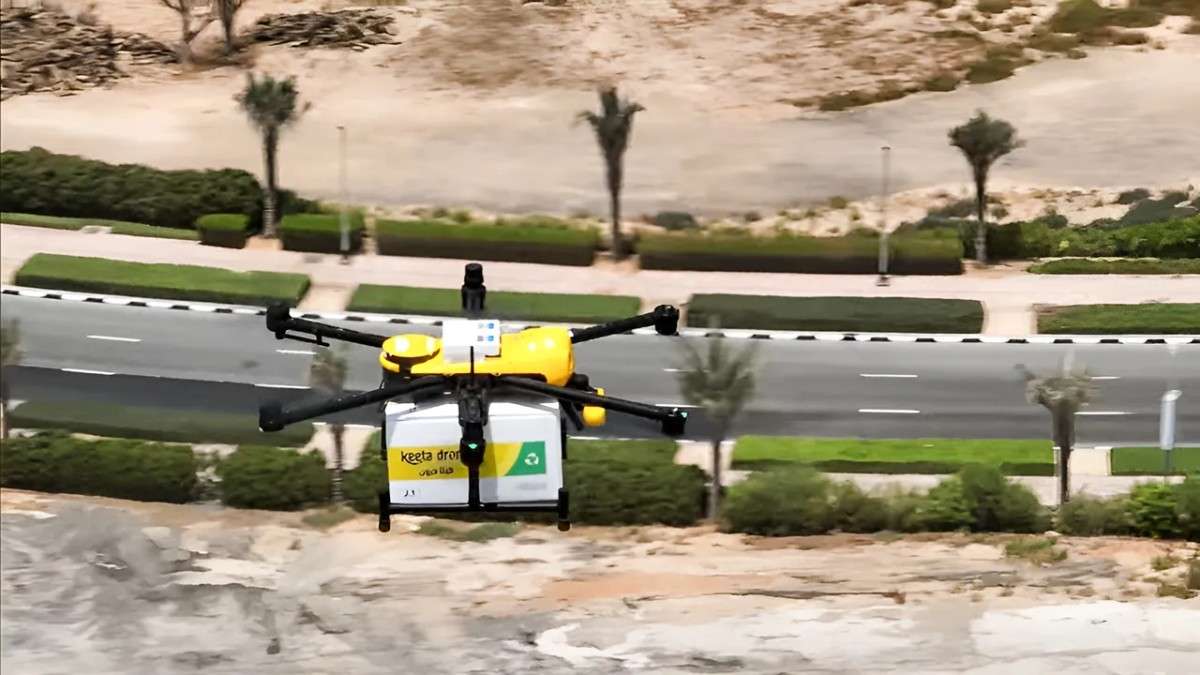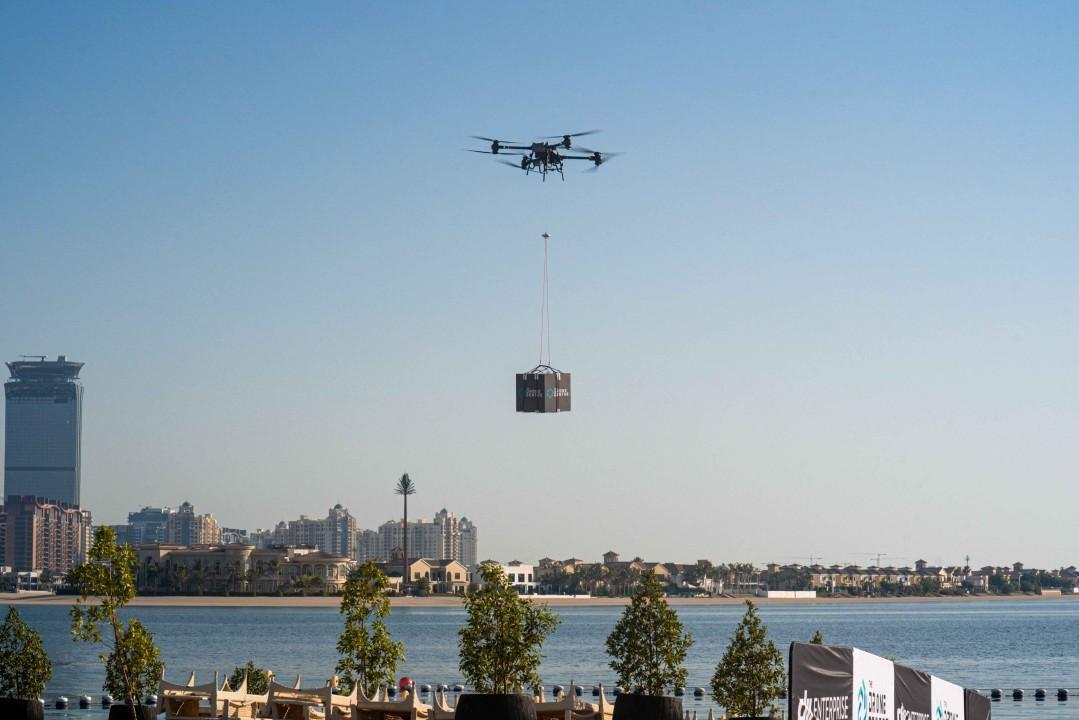
A recent achievement by Zipline, an autonomous drone delivery company, marks a pivotal moment: 100 million commercial miles flown. This extensive operational record demonstrates the proven reliability and scalability of drone logistics, suggesting a viable alternative to traditional delivery methods.
Drone delivery offers clear advantages in efficiency. Autonomous flights bypass traffic congestion, resulting in significant time savings. Zipline’s 100 million miles flown equates to over 30 years of time saved from road travel. Furthermore, these zero-emission flights contribute to environmental sustainability, aligning with carbon neutrality goals. The delivery of over 22 million vaccine doses globally highlights the critical role of drone technology in healthcare logistics, particularly in reaching underserved populations.

The UAE is actively integrating drone technology across various sectors. Last-mile delivery providers, such as Noon Minutes and Keeta Drone, are exploring and implementing drone integration for their rapid delivery services. Recently, Dubai took a significant step by launching the Middle East’s first drone delivery system, with the Dubai Civil Aviation Authority (DCAA) granting the inaugural operational license to Keeta Drone, a subsidiary of the Chinese tech giant Meituan. This pilot program focuses on the swift delivery of food, medicine, and essential items within designated regions within the city. In efforts to further this integration, the UAE has begun mapping air corridors for air taxis and cargo drones. This initiative, announced in February 2025, aims to define aerial routes and regulations within the next 20 months, paving the way for smart mobility and easing road traffic congestion.
While Noon Minutes is currently focused on solutions like e-bikes within defined service areas, their indication of future possibilities with drone technology, along with Keeta’s active pilot program, highlights the momentum towards advanced, sustainable logistics solutions in the UAE. These developments align with the UAE’s investments in smart city infrastructure and its vision for a technologically advanced and sustainable future.

While delivery agents are analysing the feasibility of drone delivery corridors and infrastructure overall, individual authority bodies such as law enforcement are already adopting drones for logistics in critical sectors such as public safety and operations. For instance, the launch of the DJI FlyCart 30 represents a significant advancement in drone delivery in the UAE. The drone’s capability for heavy payload transport over longer distances makes it suitable for diverse applications in both urban and remote environments. This heavy-lift drone is already being utilised by law enforcement units such as RAK Police to aid in delivery missions for public safety and law enforcement scenarios. The availability of such robust technology, coupled with evolving regulations, suggests a forthcoming transformation in various industries within the UAE.

Global achievements, combined with the UAE’s proactive adoption of technology and regulatory updates, point towards a near future where autonomous drones will become an integral part of the logistics ecosystem. This includes applications ranging from e-commerce and food delivery to the transport of essential medical supplies and infrastructure support, signalling a new era for transportation in the UAE skies. Watch this space for more exciting updates and news on drone delivery and all things commercial drones.